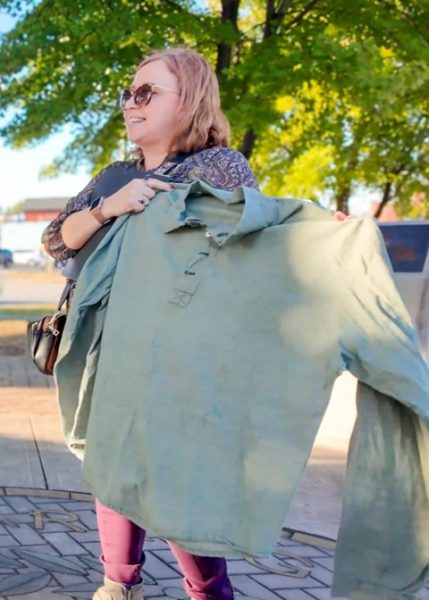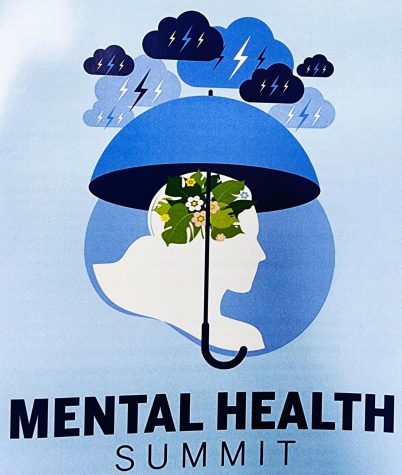Overcoming a Breakup
From the grieving stages, to moving on, finding yourself and starting a new chapter in your life
Photo Illustration by Julie Jackson.
One year. Twelve months. Fifty-two weeks. Three hundred sixty-five days of dating someone that you shared everything with. You put your all into making them happy so that you could share memories together. But it wasn’t enough. And yet again, you find yourself single.
Breaking up can be hard, regardless of the reason. Whether you are the person who did the breaking up, or are the person who did not see it coming. The process of detaching yourself from someone is not a simple task.
To start, everyone must know that all breakups, like relationships, are different. One form of healing might work for one person, but might not be the same for someone else.
Rebecca Carlton, IU Southeast senior lecturer and coordinator of basic courses in communication studies, focuses on healthy relationships in her communication classes.
“Some people can get over a breakup quickly, while others need time. Some people need closure to move on, while others don’t find it to be a priority. Some people want to be alone, while others want to spend time with friends and family. Each person needs to find what will help them in the process,” Carlton said.
To find your own path to moving forward, Carlton suggests that you must first break down the relationship and understand what went wrong.
The Heartbreaker
For the heartbreaker, the idea of the break up is needed. They are the person who sees the end of the relationship and takes the steps to end it.
This person has allowed themselves to think of the relationship, know the issues and concerns which led up to the breakup, and have already begun the detachment process.
Although all breakups are difficult, this person has an easier time following the event because they have already began to move on.
It is important for this person to understand the feelings of the other. This person must understand that most times the heartbroken person does not see it coming.
If you find yourself in the position of becoming this person, think of the steps you must take to not make your partner feel attacked.
Elly Prior, relationship therapist, suggests three steps of a breakup. Step 1: Know your reasons for breaking up, Step 2: How to tell your partner you want to break up, and Step 3: Save face with family and friends.
The Heartbroken
For the heartbroken, often times, the breakup is not seen or accepted.
Unlike the heartbreaker, you are just now beginning the healing process, whereas the other person, might be a few steps ahead of you. This typically makes it harder for the heartbroken to move on.
This person often sees themselves as the victim, when it is not the case. This person is the one who was not ready to let go of the experience or person.
Everyone heals in different ways, and because of this, the time frame is different for each individual.
Sheri Meyers, of the Huffington Post, reminds those who find themselves as the heartbroken, to grieve at your own pace. Her book, Chatting or Cheating, gives examples of how to heal from a specific type of loss.
Surviving the Breakup
The good news is, you’re not alone. Everyone has had their heart broken.
These broken hearts might not be directly related to a romantic relationship, they can include any loss.
“Whether the loss is obvious, such as the ending of a relationship or death of a loved one, or less obvious, such as changing schools or changing jobs, it is still a loss,” Carlton said.
Much like other losses, people must go through a grieving process.
Elisabeth Kübler-Ross, author of ‘On Death and Dying,’ describes the stages of grief in five stages; denial and isolation, anger, bargaining, depression and acceptance. Although everyone goes through the same stages of grief, how long the relationship was and the type of relationship can affect how people go through these stages.
Bernardo Carducci, director of the Shyness Research Institute and former IU Southeast professor of psychology, reminds those suffering from this to accept that it will be a hard process. If you are investing in anything and have a passion for it, you will be upset when it comes to an end.
Carducci said many people who suffer from emotional distress will have a strong dominate response. This emotional trip is what professionals say your mind automatically goes to when you have a problem. The problem with these responses is that oftentimes it will work against you.
“You have to ask yourself if you’re going back into a similar pattern,” Carducci said. “When you are finished with a relationship with someone and go into a relationship with someone else, you have to ask yourself if you are going into the same kind of toxic relationship.”
He believes if this is the case, you should step back and evaluate what will work better for your situation. Going back to the same negative responses will only leave the recurring issues with a new partner.
For those who find themselves in the ‘on again, off again’ relationship, Carducci says to step away from the drama of the cycle.
“It’s like going on a roller coaster. These type of people love the high of going up, and the drop of going down,” Carducci said.
Oftentimes, people need time to themselves to figure out what went wrong in the relationship. Once they find this, the time might be better to pursue a previous relationship. However, do not rush the process.
Carlton suggests taking time to find yourself so you may enter new relationships with a fresh slate.
The best advice Carducci says he can give is do not jump into a new relationship to make yourself feel better. Everyone wants to be loved and feel like they are wanted, but sometimes they must find it within themselves.
When it comes to social media, Carlton and Carducci both agree, staying away is the best idea. People portray their best lives on social media, causing others to only see the positives of their lives. Because of this, you are unaware of their struggles and get caught up in a false reality.
“You start to compare yourself with the relationships of other people. And now you begin to get these ideal standards that are unrealistic,” Carducci said.
Finding Happiness
“Just because the relationship did not work does not mean that something is wrong with you,” Carlton said.
Everyone has been through traumatic experiences before and each person has the strength to recover.
“First, and foremost, recognize that this is a painful experience … but also recognize that you’ve been through painful experiences before,” Carducci said.
Carducci says to not focus on your faults, but rather turn your attention to your strengths. Once you begin to love yourself, you will then be able to allow someone else to love you in the same way.
“Slow down … don’t assume that this is your fault, and focus on the fact that you have strength because you have been through things like this before,” Carducci said.
One way to slow down is to turn your focus on other things such as family and friends. During emotional times, these are the type of people who will become your backbone and push you through the process.
Surround yourself with positive people who genuinely want the best for you.
“Volunteer! Help people who seem to be worse off than you. There is always someone who needs your help,” Carducci said.
Simple steps like this can distract your mind from the negative situation and give you a new outlook on life.
Carlton says many people must learn how to become themselves again after dating. When you are with someone, it is easy to lose yourself and become more of a unit rather than two individuals who share romance.
Carducci suggests that before beginning a new relationship, establish with your partner that you want to maintain being yourselves, and find a common ground in which you can do so, while still growing together.
“Sometimes it helps to speak with a professional … just as you would allow time for an injury to heal, allow yourself to do the same,” Carlton said.
If you would like to speak to someone, visit the IU Southeast Personal Counseling Office located in the University Center.






